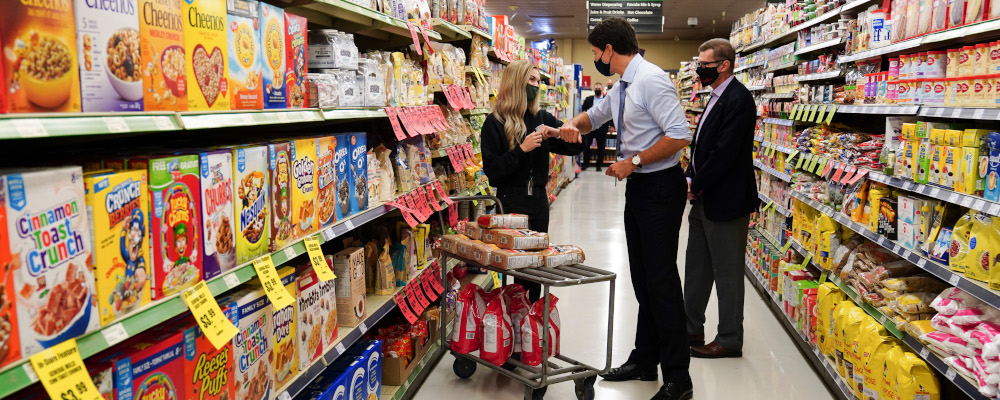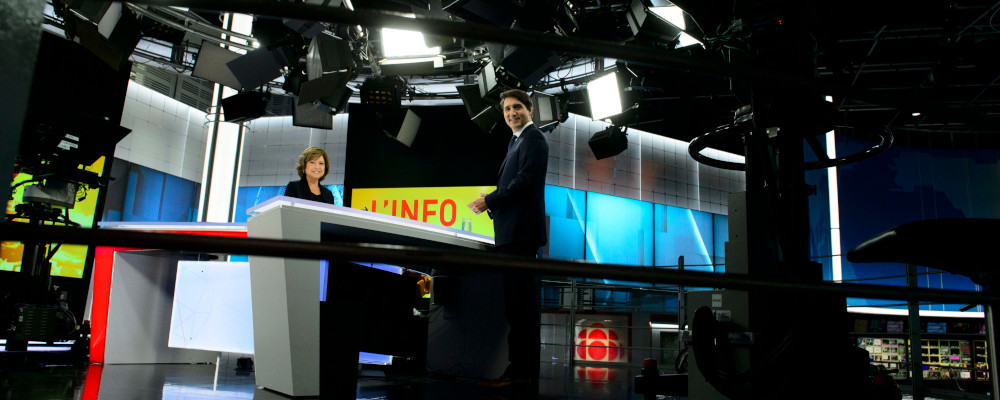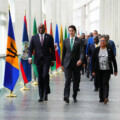The CEOs of Canada’s largest grocery chains recently appeared before Parliament to answer questions about rising prices for groceries. With food prices up 10.4 percent over 12 months, Canadians are feeling the pinch and parliamentarians are reacting. However, much of last week’s political theatre ignored an important factor contributing to the rising cost of food—namely, government policy.
For example, the federal carbon tax, which affects food prices by raising the costs of transportation and other “inputs” integral to our food system. According to one study, at $50 per tonne (the current minimum level set by the federal government), the carbon tax would increase food prices by 3 percent. The carbon tax is set to rise to $65 per tonne in April, ultimately soaring to $170 per tonne in 2030, meaning the carbon tax’s upward pressure on the price of food (and other goods) is just beginning.
The federal government may also soon ban certain types of fertilizer as part of its broader climate policy agenda, which would further increase costs for farmers by limiting access to fertilizer products. When federal policy makes food production more expensive, grocery store prices will climb.
Now consider Canada’s longstanding system of supply management, which restricts imports to allow domestic producers of milk, eggs, and poultry to maintain higher prices for their products than would otherwise exist in a competitive market. Government dictates who can produce, what can be produced, when, and how much, while also restricting the ability of Canadians to access certain food products from foreign suppliers. Not surprisingly, research finds that supply management raises food prices—according to a pre-pandemic study, the system costs the average Canadian household an estimated extra $300 to $444 annually.
And if you’ve done any grocery shopping lately, you’ve seen the consequences. Price increases for dairy products and poultry have generally outpaced those for food overall. For instance, between January 2022 and January 2023, prices have risen 12.7 percent for fresh or frozen poultry, 11.4 percent for fresh milk, 19.1 percent for butter, and 15.6 percent for eggs. Again, these increases are noticeably higher than the 10.4 percent increase for food overall.
Unfortunately, supply management is only one example of Canada’s many problems with competition policy. For example, another recent study published by the Fraser Institute found that government policies, including interprovincial trade barriers and occupational licensing rules, help shield 35.1 percent of the Canadian economy from competition. The same study ranked Canada very low (48th out of 62 peer countries) on foreign investment restrictions, which also contribute to higher consumer prices.

Many factors determine the price of food. Supply chain challenges, changes in the cost of inputs (fuel, for example), weather, labour market conditions, etc. But more competition leads to lower prices as firms respond to customers having more power in the market and more choice in what to purchase. While parliamentarians may have valid reasons to examine the possible concentration of market power in the grocery industry, they need look no further than federal policies (and provincial policies) for ways to improve the competitive landscape.
At a time when many factors are pushing food prices higher, Ottawa is actively contributing to the problem by limiting competition and making things more expensive. Members of Parliament, including those who recently questioned Canada’s grocery CEOs, would do well to look inward and reconsider these policies if they want to lower food prices for Canadians.
Recommended for You

Ginny Roth: J.D. Vance, Pierre Poilievre, and how they slice their economic pie

David Polansky: As President Biden leaves the race, will the Democratic Party hodgepodge hold?

RCMP spending to protect MPs may have risen 112% since 2018, as Canadian politicians face greater rise in threats

Trevor Tombe: Canadians are paying billions in hidden taxes on new homes









